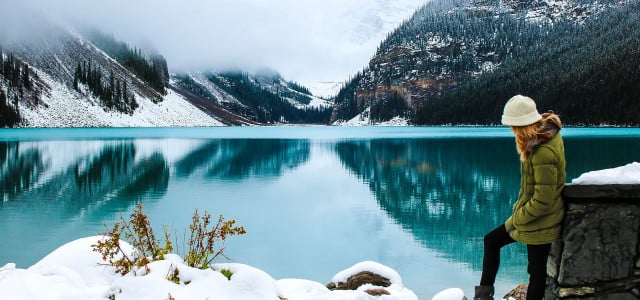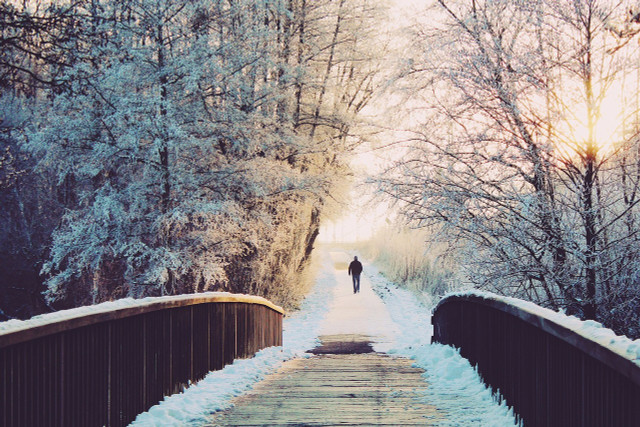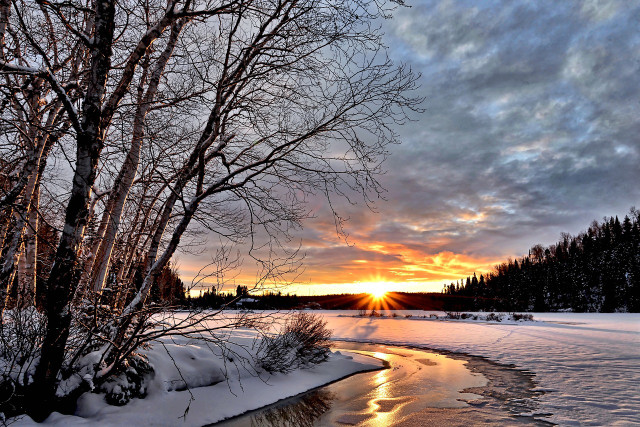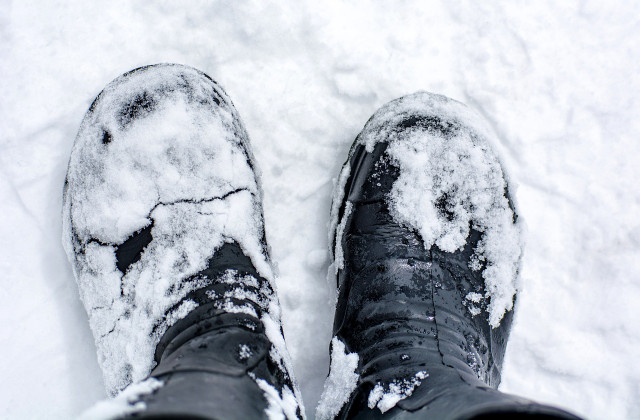
When you go winter hiking, you can do something for your health, wrapped up warm, explore new areas and keep fit. We tell you what you should consider.
Winter hiking might seem like a daunting thought at first. After all, unlike in summer, it is cold outside and often uncomfortable and wet. And then spend hours outside? But winter hiking can also be fun and give you new perspectives on the world. You can also get started without much preparation: hiking not only works in the mountains, but also in a nearby forest or around a lake. You can also increase your endurance from hiking tour to hiking tour.
That’s why winter hiking is so good

(Photo: CC0 / Pixabay / TanteTati)
During the winter months we spend much more time indoors than in the summer. After all, on cold days, when it gets dark quickly, it is obvious to prefer to sit on the couch than to go for a walk in the dark cold. In the long term, however, this can promote a lack of exercise and the resulting complaints (such as back pain or mood swings). Winter hiking can prevent this phenomenon and thus has a positive effect on body and psyche:
- Winter hiking is a boost for your immune system: because you fill up on vitamin D outside. According to scientific evidence, vitamin D can strengthen a weak immune system.
- Winter hiking gets you fit: When hiking, you move moderately. This has a positive effect on your cardiovascular system, according to the German Heart Foundation. According to the Federal Center for Health Education, hiking also promotes your sense of equilibrium and balance.
- However, there is no shock load generated by fast movement (like jogging) at a leisurely pace of walking. In this way you protect your joints at the same time.
- Winter hiking is good for the soul: who doesn’t know the winter blues? Hiking in winter can help if you are in a bad mood. As the Robert Koch Institute reports, there is a connection between physical activity and mental health. If you move in nature, you can get out of your everyday life, switch off, relax and sort your thoughts. You can also be proud of yourself and your achievement after a successful hike.
- You experience new adventures: It doesn’t always have to be the same route to walk. With winter hiking, you can get to know new areas and thus explore your homeland better on a micro-adventure. If you are already experienced in hiking, winter hiking can also be a new challenge for you – especially in mountainous regions.
You should keep this in mind when hiking in winter

(Photo: CC0 / Pixabay / AlainAudet)
As good as winter hiking is, there are still a few details to keep in mind before you set off. This includes the following points:
-
Use the sun: In winter, the sun sets much earlier than in summer. So you should leave in time to avoid getting into the dark. Because then not only is your view restricted, it also gets colder.
-
Slowly increase: Before you embark on a complex three-hour tour, you should try hiking in wintry temperatures with a shorter route first. This way you learn to assess yourself better and know what you can trust yourself to do. Especially if you have just been ill, you should not overdo it with winter hiking and start slowly.
-
Breaks are important: In order to prevent cooling down, it is better to take several shorter breaks than one long one.
-
Don’t overdo it with the route: Especially when there’s snow, you’re going to be slower than usual. So plan for that when you decide on a hiking route. Not only can this prevent you from falling into the dark, but it can also reduce the risk of hypothermia.
-
Keep an eye on the weather forecast: This can be important, especially in the mountains, so check the avalanche warning levels. A quick weather check can also save you from unpleasant surprises, such as a return trip in a flurry of snow.
-
Don’t forget sun protection: Even in winter there is a risk of sunburn – especially in the mountains. So don’t forget to put on sunscreen.
-
Think about the cell phone battery: when it’s cold outside, your cell phone battery drains faster. To prevent this, you should carry the mobile phone close to your body – it is well protected from the cold. If you are planning a longer tour, it is better to pack a power bank.
You need this equipment for winter hiking

(Photo: CC0 / Pixabay / confused_me)
If you want to move outside in the cold season without freezing, you need the right equipment. This includes:
- Waterproof hiking shoes or boots: Ankle-height hiking shoes prevent snow from entering the shoe.
- Thick hiking socks
- Scarf, hat or headband
- gloves
- Waterproof winter jacket
-
Onion principle: It is best to wear a quick-drying shirt as the first layer and pull a thick sweater over it. Then comes the winter jacket.
- winter hiking pants
- A backpack with provisions: This includes a water bottle or thermos with tea and small snacks such as apples, nuts or muesli bars.
-
sunglasses and sunscreen
- Blister plasters and first aid kit
Read more on Techzle.com:
- Prevent blisters while hiking: 8 tips that really help
- Hiking in Germany – this is how a sustainable holiday works
- Cycling in winter: the 5 best tips